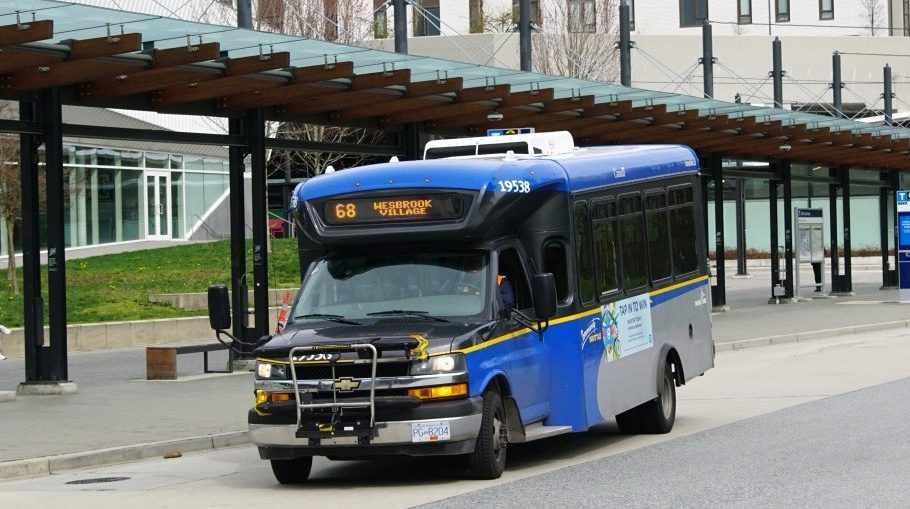The 68 is a popular bus route for UBC students and residents to get around campus, but it doesn’t come without its own issues, like running late or full during peak transit hours.
It’s not a unique problem when buses run at capacity. “We are seeing strong ridership recovery across the transit system, which is resulting in overcrowding on some routes at certain times,” a TransLink spokesperson told The Campus Resident.
Ridership is increasing across the board. For students that rely on the 68 to get to class, this may pose a problem.
There are a few possible solutions. “Walking or biking could be an option for some, especially if new micro mobility programs were introduced on campus. Another option for some may be to take one of the many buses that run on Wesbrook Mall,” suggests Jen McCutcheon, director of Electoral Area A. “With respect to the 68 bus in particular, increasing the frequency of the bus service may solve capacity and timing concerns.”
A bus frequency of 15 minutes or less is considered ideal for service. Given the 68 runs every 20 minutes, even on weekdays during peak transit hours, there is a case to be made that service should increase.
“The best improvements to the 68 would be to increase the frequency,” McCutcheon says, “but TransLink will need to weigh this need against other public transportation needs across the region.”
TransLink manages route alignments, hours, and frequency of all bus routes in the Metro Vancouver region. It balances increasing access to more areas with increasing frequency. This means improved access to less well-served parts of the region will be prioritized over the frequency of the 68, especially given how close it is to alternate routes like the 49, R4, 23, and 33.
When it comes down to it, in Metro Vancouver there are hundreds of bus routes to consider and limited funds available. “We are bumping up to the limit of our system with our current funding, which is limiting our ability to expand services,” the TransLink spokesperson says.
That’s not to say all hope is lost. “UBC’s Campus and Community Planning provides input to TransLink, and I know that they have been advocating for increased frequency,” McCutcheon says.
TransLink is also working with provincial and federal governments to secure funding for the Access for Everyone Plan, which will bring sweeping improvements to the region’s bus network. Some of the changes, if approved, include doubling bus service over 2022 levels, which would hopefully solve the frequency issue with the 68 and help it better meet the needs of residents.
If students or residents find issues with the bus route or other UBC bus routes, they should share them with McCutcheon (areaajen@gmail.com), TransLink, or UBC’s campus and community planning department.
AMIE BERNAERDT IS A SECOND-YEAR STUDENT AT UBC WITH PLANS TO MAJOR IN CREATIVE WRITING OR ANTHROPOLOGY. SHE LIVES IN WESBROOK PLACE.
